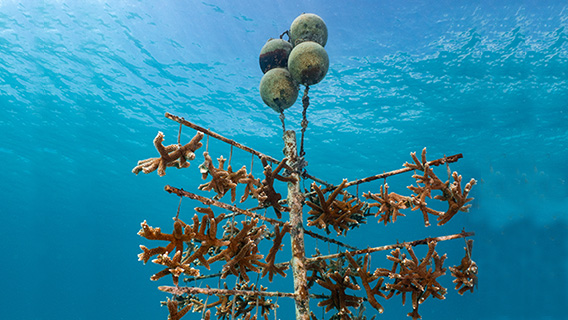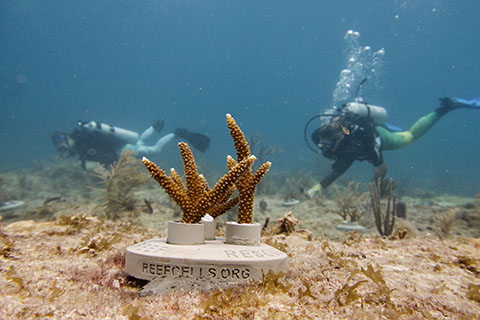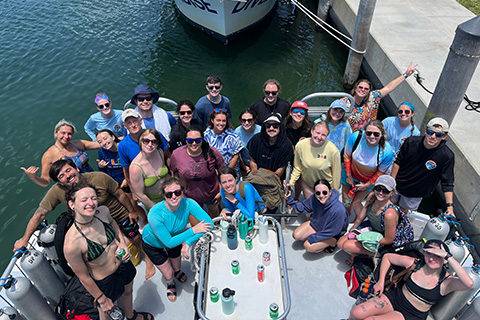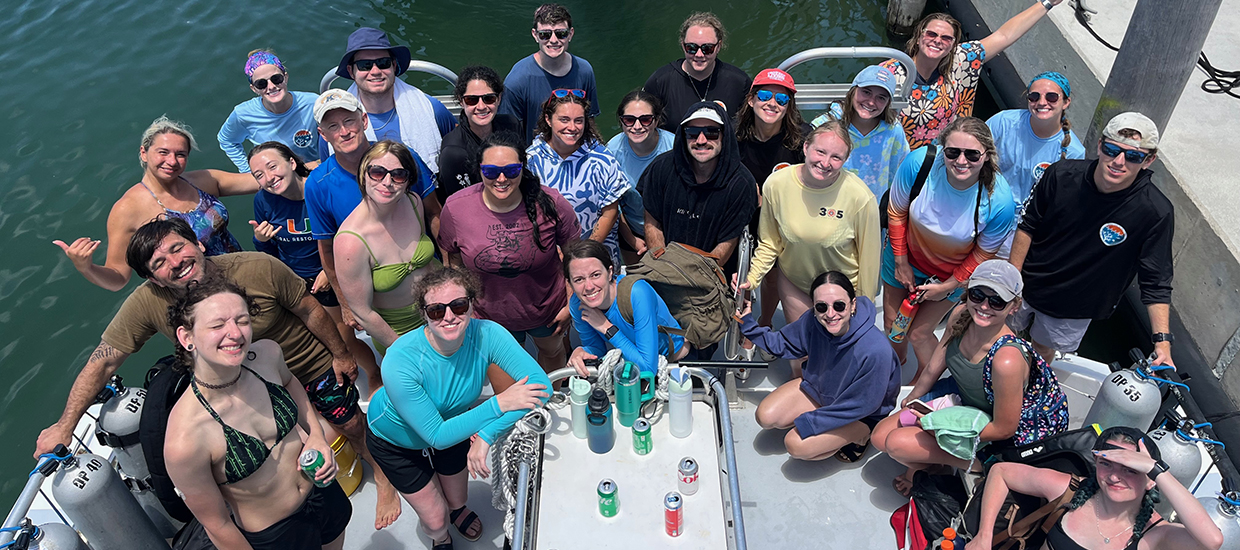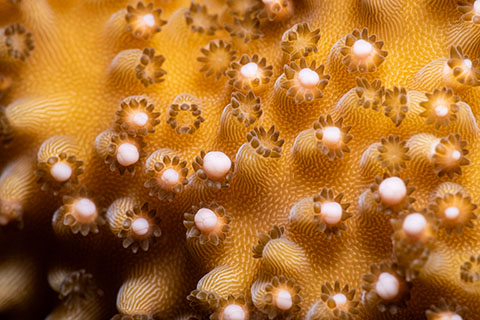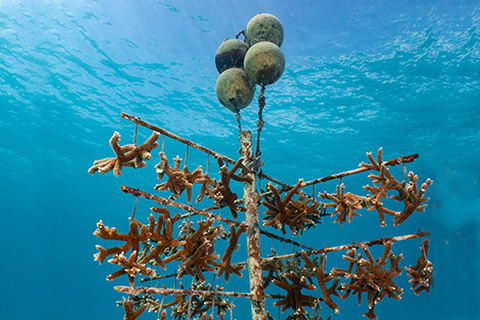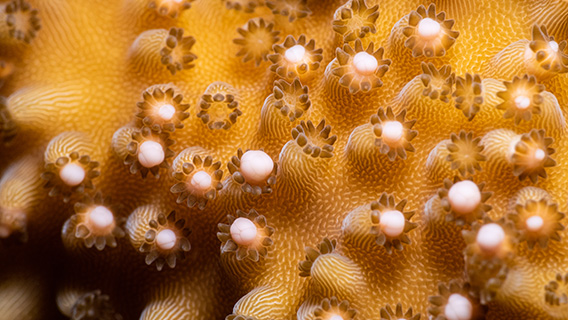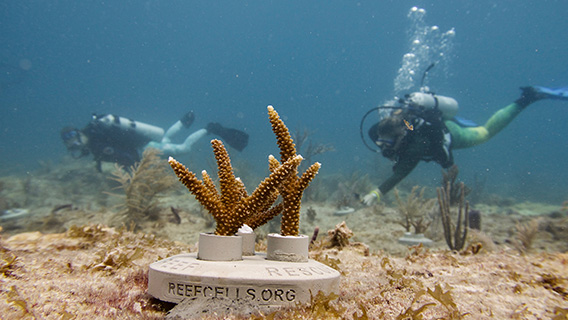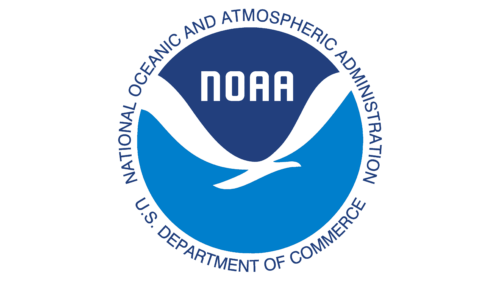Featured Links
Asexual Propagation
To support large-scale reef restoration, project partners are working to asexually propagate and outplant 50,000 coral fragments over four years. Resilient corals that survived the 2023 bleaching event and disease outbreaks are being microfragmented and shared among nurseries for growout in both in-water and newly expanded land-based facilities. Stress-tolerant wild corals, including those salvaged from construction sites, are also being added to the propagation pipeline. The expanded land-based infrastructure allows for large-scale microfragmentation and controlled growout, including exposure to heat-tolerant algal symbionts, to prepare corals for a range of reef environments.
Managed Sexual Reproduction
Project partners are selectively breeding corals that survived the 2023 marine heatwave and ongoing disease outbreaks to enhance coral resilience and genetic diversity. These efforts focus on endangered species like Acropora cervicornis, Acropora palmata, and Orbicella faveolata, using both wild-collected and nursery-grown broodstock. Coral larvae are reared in expanded land-based facilities, where they undergo interventions to boost heat tolerance, disease resistance, and settlement success. Advanced techniques, including symbiont provisioning, microbiome manipulation, and new settlement technologies, are being deployed to improve juvenile survival and scale up restoration across Florida’s Coral Reef.
Field Outplanting and Monitoring
Project partners will work at multiple coral reef restoration sites across Monroe, Miami-Dade, Broward, and Palm Beach Counties to implement these restoration approaches. Corals will be grown in land-based and in-water nurseries before being outplanted, where innovative technologies, such as hydrogels and anti-algal coatings, will be tested to enhance survival and growth. Each site will be closely monitored to assess coral health, reef recovery, and the effectiveness of these cutting-edge restoration strategies.
Community Engagement and Citizen Science
To expand the impact of our restoration activities, this project will implement a three-pronged approach to engage and expand the involvement of community members and stakeholders through citizen science programs, informal science education at Frost Science and the Florida Aquarium, and professional development opportunities through internships and training.
